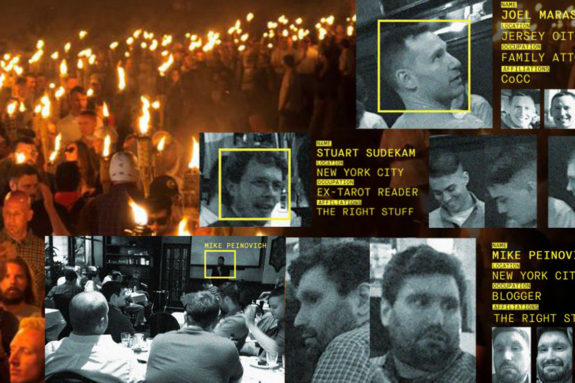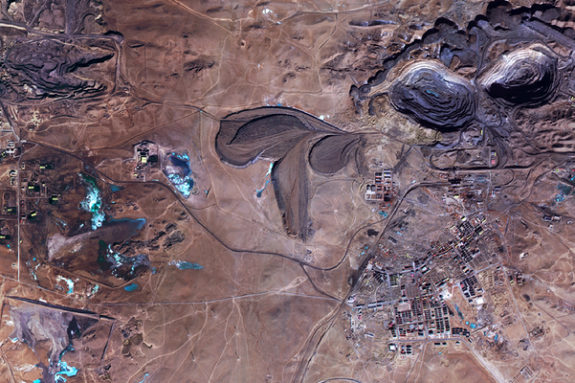Direct action might stop the war.
Released in fall of 2000, “Bombs over Baghdad” was, depending on how you measure, the last great song of the last century or the first of this one. Like everything else about the song, this ambiguity is perfect. It is always on time. If there has been a constant in my political life as an adult, it is the bombing of Baghdad by the United States: Tomahawks, chopper-launched heatseekers, drones, a murderous predilection repeated last Thursday night for the purpose of killing one Iranian person in particular, killing nine others collaterally, and drawing Iran into a war on which the current president might campaign.
By “political life” I mean something not just social but global, shared with people I will never meet, shared with people who suffer the consequences of this American appetite far more than I will. If there have been two constants here they are these: bombs over Baghdad and the unraveling of US hegemony. They inflect each other in crude and complex ways. Trump’s presidency is itself already an expression of the United States’ declining capacity both to generate wealth at a global scale and, in turn, its failure to pass some emollient fraction on to its citizens. This decline has been decades in the making but became a general public fact only recently, just about when worsening life chances for some white people started to show up in the data, go figure.
That is the domestic face; the international face takes its countenance from the fact that, as the great gouts of wealth that the United States was able to direct toward itself for much of the twentieth century have slowed, there is correspondingly less for the sycophant states to capture en route or as spillover, which has dampened the sycophancy a bit. Less able to reconfigure the world via soft power, the US must increasingly deploy hard power to preserve what flows of value remain. All of this is what is meant by hegemony unraveling. About thirty-five nations contributed troops to the first Gulf War; the “coalition of the willing” for the second Gulf War was advertised as including over forty, but of these, exactly three in addition to the United States took part in the invasion. The United Kingdom, Poland, and Australia were already, seventeen years ago, the last true sycophants standing; there was no broad coalition behind the press releases. That is also what “hegemony unraveling” means. Meanwhile, the divergence of the two imperial functions — accumulation engine, global policeman — allows for geo-economic challenges and the growth of other blocs, around Russia and China. Whether the coming election alights on the topic of wage stagnation or opioid deaths, on the desperate need for social protections or the tyranny of hyperincarceration, on global competition or bombs over Baghdad, the end of growth is the red thread passing through all of them.
This is the context in which US-based social movements move. It has shaped in various ways every struggle of this century, and will shape the antiwar movement trying to assemble now, this week, just as it shaped the antiwar movement of 2002-3.
Those bombings set in motion great marches. That movement proved as vast as it was ineffectual; these two features are themselves one. We might describe the scope of the movement, both domestically and internationally, as another version of failing hegemony. An ever-greater portion of the population could not imagine what their own stake might be in US military adventurism. At the same time, the constraints that oriented US policy arose in part from a real and ongoing need to restore accumulation, a compulsion which rendered it fundamentally unwilling to give even a planetary protest any sort of hearing. This remains the case. And it is hard to suppose that protest, that vague category which seems in great majority to feature great popular armies raised overnight toward the military end of seizing the moral high ground, will be efficacious against the onset of a new phase in the sustained war, or much else.
If the slogan of that antiwar movement, “No Blood for Oil,” seemed too great a simplification, it was not for all of that mistaken. There can be no doubt that something like racial extractivism, the intensified appropriation of cheap resources backed by force of arms, has become the raison d’état of a global but still US-centered settler capital hell bent on countervailing the erosion of industrial profits. This truth obtains for the Oceti Sakowin and Wet’suwet’en nations no less than it does in the Straits of Hormuz or the Niger Delta. It provides us something like a logic for imperial action, for the ceaseless violence of the global north against the south, in predictable coordination with the electoral cycle precisely because state and capital in this scenario need each other ever more explicitly. And this in turn helps set an agenda for uprising.
An opposition movement will need to seek passage between, on the one side, an axiomatic anti-imperialism which imagines US war-making as something like a psychological drive, the sadism of a wounded leviathan; and on the other side, that curious left version of anti-anti-imperialism which has at least on occasion been an alibi for Zionism. The former limits itself to the terrain of the political at best and moralism at worst, and is persistently drawn into defending deadly nationalisms elsewhere. The latter neglects the degree to which global capital is necessarily a colonial project, not as a matter of some residual habit of the settler mind but as an ongoing structure of accumulation.
As a movement navigates between this Scylla and Charybdis, it will at the same time confront the problem of electoral politics. It may be that the third constant of political life is the demobilization of social movements by the promise of parliamentary rescue. One understands such a hope, particularly when other avenues of political action have been ruthlessly foreclosed. But history has not been kind to this illusion. There are no doubt things to be gained both in the Great March from Point A to Point B and from electoral organizing, not least the experience of political commitment, the development of organizational skills, the forging of real solidarities. There may be more still to be gained from the experience of measuring a tactic or a strategy against the present and learning to abandon those that have little purchase.
While the situations among states in the global division of misery are never quite congruent, there is surely much to be learned from the last two years of street conflict around the world. YouTube, repository of tutorials for applying makeup and repairing bicycles, is no less a developing archive of insurgent tactics. The figure perhaps closest to the relatively pacific protest which rules the US imagination was Puerto Rico’s mass strike; that drew as much as a quarter of the island’s population into the Expreso Las Américas and seized control of San Juan. Or there are the distributed blockades of the Yellow Vests in France, the mass lawlessness of Santiago, the endlessly inventive urban insurgency of Hong Kong. All of these, it is worth noting, and other movements as well, share one element missing from the antiwar movement of seventeen years ago: victory. Each won its original demand and rather swiftly at that. Repeatedly they kept going. It’s puzzlingly easy to forget that the first and most decisive win against Trump administration policies, contesting the so-called Muslim ban, derived not from public marches but decisive and distributed infrastructure shutdowns.
It is to that moment that I can’t help but look. Not simply for the experience of collectivity, solidarity, ambition, power. Not just for the fact of success — partial as always, temporary as always, but success. But because the figure of the migrant, seeking refuge across a border, radiates from the assassination of Qassim Suleimani. It is easy to note that he himself was in Baghdad as a foreigner, a Muslim at an airport, that figure that the US state is least able to abide. But that is cheap allegory. What matters is that the coming wave of violence, cynically calibrated for oil abroad and votes at home, will drive ever more refugees from Iran, Iraq, Syria, and elsewhere, adding to the vast numbers already driven forth before the unholy trinity of war, poverty, and climate collapse. The roads to Russia and the rich Gulf states are largely closed. Many head already to Turkey, Cyprus, Greece, the absorption zones of Europe, often en route to wealthier states. Many more now will.
This human flow of the dispossessed, it must be understood, this is the great march that has been set in motion with bombs over Baghdad, this year’s and the last and the last and the last. They will arrive at frontier after frontier, increasingly militarized within an ascending xenophobia as national zeal rises not just on the right but the left. They deserve from us an uncompromising internationalism, a refusal of the merciless border realpolitik on offer, and something more than another march.





